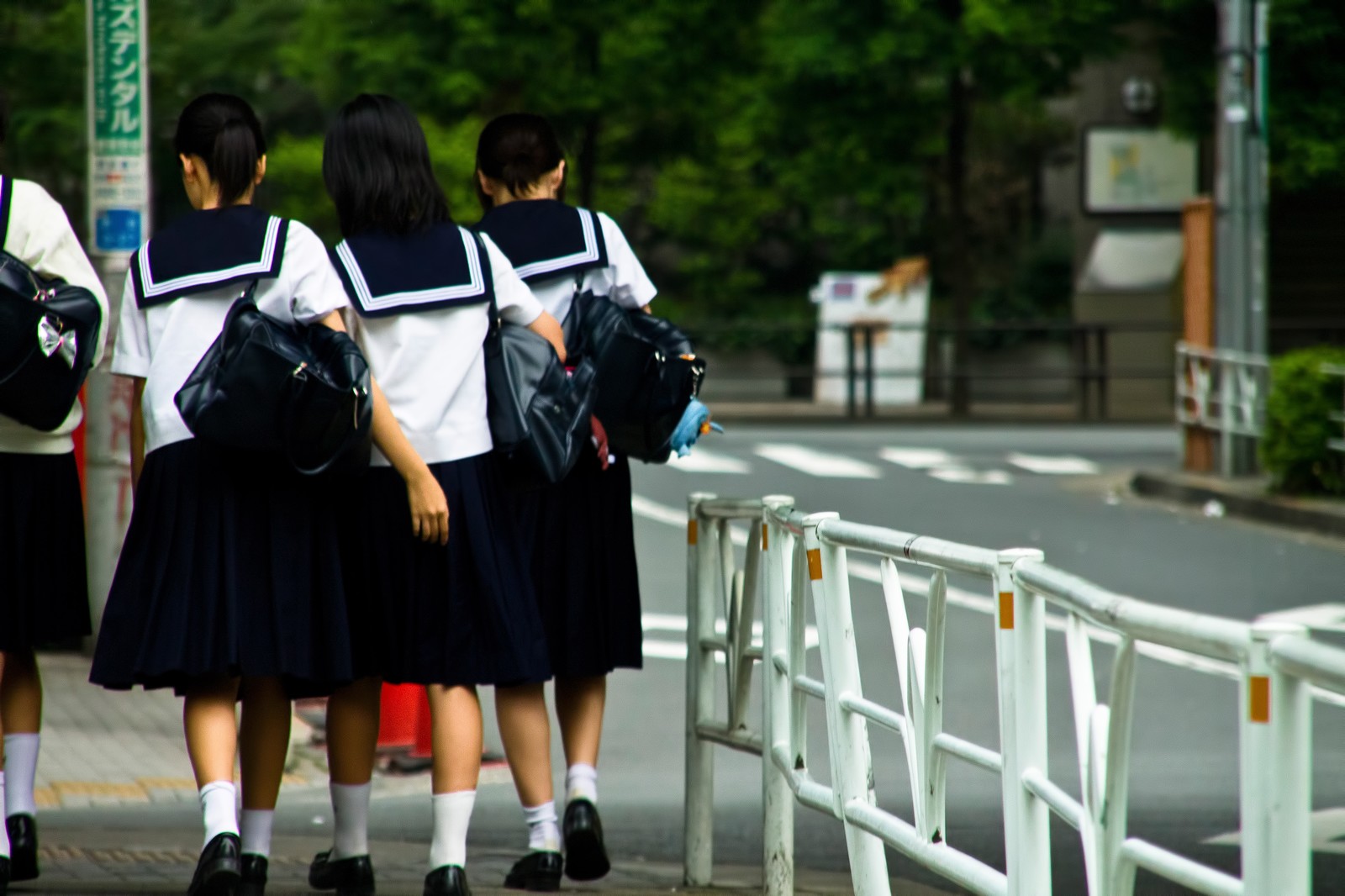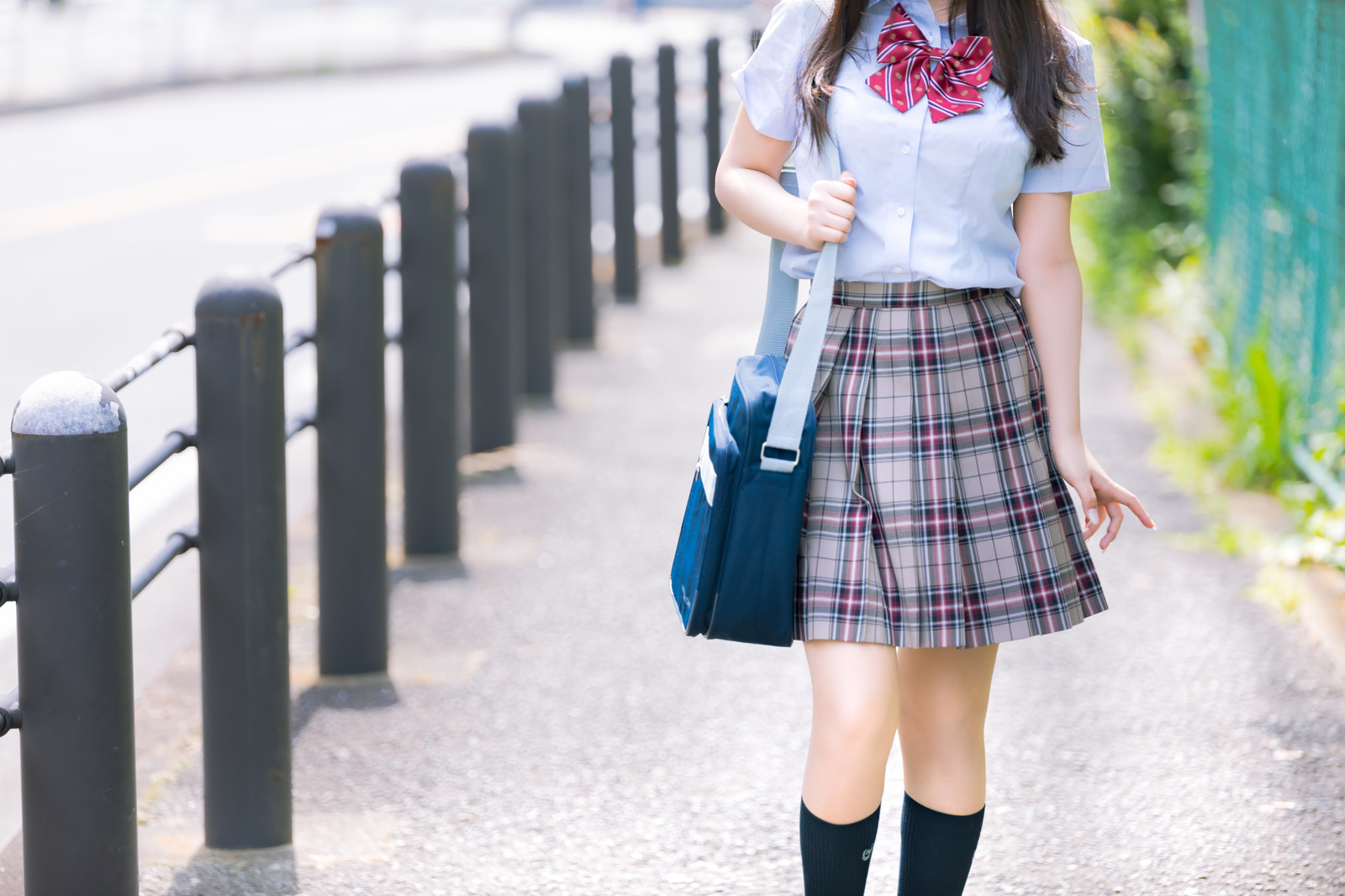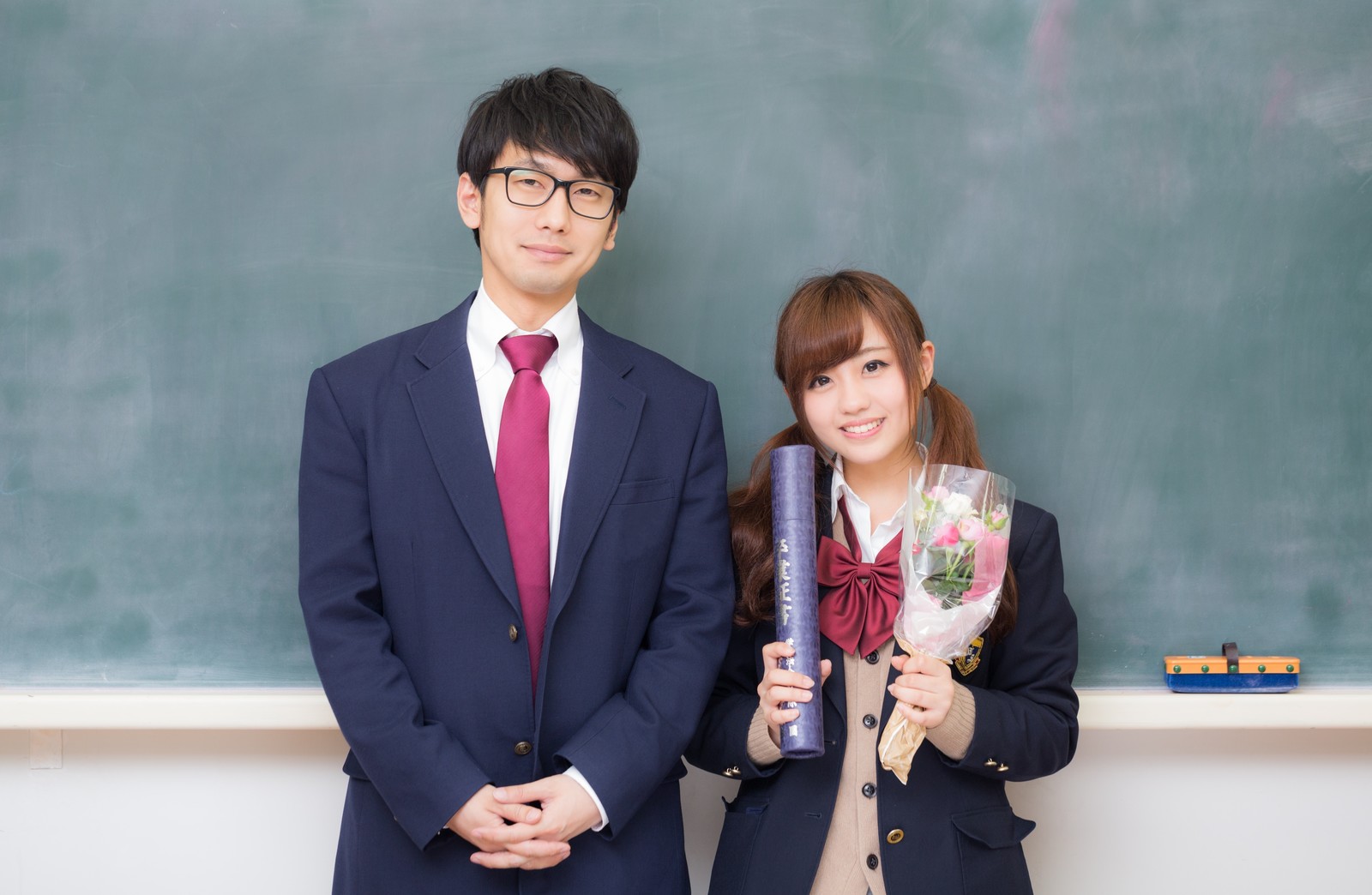
A coalition of students, teachers, and lawyers submitted the petition to the Japanese Ministry of Education on March 26.
As you probably know by now, most Japanese junior and senior high schools require their students to wear a school uniform. The standard look of dress slacks or a pleated skirt with a button-up shirt, a tie or ribbon, and a blazer with the school logo has become such an ubiquitous part of Japanese school life that it would almost be wrong if students weren’t required to wear them.
But some disagree. A coalition of students, teachers, and lawyers created a petition to give students the right to choose whether they want to wear a uniform to school or not, and they managed to collect nearly 19,000 signatures in support of the cause.

The petition, which is titled, “Are you free to choose not to wear a uniform at your school?” was created by Hidemi Saito (not his real name), a school teacher in Gifu Prefecture, and is supported not only by students and other teachers, but also lawyers, local educational chairs, businesspeople, and activists.
Saito created the petition when he noticed that school uniforms don’t seem to affect student behavior. Since June 2020, students at Saito’s school have been allowed to wear either their uniform or their casual clothes to school because of the pandemic, to allow students to wash their uniforms in between wears to keep the virus from collecting on the fabric.
As a result, half of the students have been wearing their uniforms, and half their regular clothes. But Saito noticed that, even with the half not wearing the uniform, no new problems have arisen at his school. On the contrary, it seems like the newfound sense of freedom students have now that they can choose their clothing has resulted in a bit more of a comfortable school environment.
▼ Students are also allowed to wear their school tracksuits to class.

That’s why Saito started this petition; because he believes that Japanese schools have too many rules that are overly restrictive of student behaviors and that are damaging to students’ mental health. Rules like the stipulation that students must wear white underwear, or that they aren’t allowed to date or have part time jobs, or that they aren’t allowed to braid or dye their hair are unnecessary, he believes, and according to a survey conducted by the Ministry of Education, stringent school rules like these were the reason that 5,500 kids didn’t go to school in 2019.
“As an educational professional,” said Saito, “It’s hard to hear there are students being hurt by these rules, and that some students are losing opportunities to learn because of them.”
Saito believes that forced uniforms could be one school rule that causes students’ stress. He listed a number of reasons on the petition as to why uniforms in particular can be damaging to students’ mental health. For one, they’re insensitive to transgender students who are forced to wear the wrong uniform, and students who experience sensory overload cannot tolerate them, which forces them to find schools that don’t require them. Uniforms are also extremely expensive, and of course, let’s not forget the fetishization of school uniforms that makes female students a target for perverts.

But as you can tell from the title of the petition, Saito doesn’t advocate for abolishing uniforms entirely; rather, he believes in the freedom of choice. He notes that a 2016 survey conducted by the Asahi Shimbun revealed that the population’s opinion on whether students should wear uniforms or private clothing was very evenly divided. While many students chafe at the restrictions a uniform imposes, many others prefer to wear uniforms because they help hide differences in income, among other things.
Some might suggest that schools keep the uniforms, but allow students to choose whether they want to wear the skirt or the pants. This sounds like a good suggestion, but, aside from not addressing the prohibitive cost of uniforms, it leads to another way for students to feel singled out. At one private school, for example, female students have recently been allowed to wear slacks, but it has become a stereotype that female students who wear slacks to school are coming out as LGBT, so very few do.
That’s according to a 17-year-old high school student who participated in the press release for the petition. “If it became normal for all students to choose what they want to wear to school,” said the student, who is a student council member at her school, “I think it would really get to the root of the problem.”
That’s why Saito is petitioning the government to allow students to choose whether they want to wear a uniform or their every day clothing; so that students may have the freedom of deciding what they want to wear, and won’t feel stressed enough to miss out on their education because they don’t like, can’t afford, or can’t wear what they’re forced to wear.
▼ Some elementary schools require students to wear uniforms as well.

Therefore, the petition requests the following four things of the Japanese Ministry of Education, Culture, Sports, Science, and Technology:
“1. That the Ministry clarify whether schools should have the right to force students to wear school uniforms that they dislike or can’t wear.
2. That the Ministry conducts a nationwide study on the rules and practicality of school uniforms and dress codes.
3. That the Ministry clarifies whether schools should create a system where they post school rules on their home page in an open forum where students and parents can express their opinions of them.
4. That the Ministry clarifies whether schools should immediately repeal rules that affect the mental health of students.”
Saito also included, unofficially, that he and his fellows would also like the Ministry to issue guidelines regarding appropriate school rules.

The Change.org petition was submitted to the Ministry of Education on March 26 with 18,888 signatures, but it is still open to the public to sign. As of this writing, there were 18,933 signatures and counting. Those who agreed had various comments and personal experiences to share as to why they think free choice is a good option:
“The fact that female students are not allowed to wear pants or even tights in winter is a complete violation of human rights.”
“We didn’t have uniforms at my high school and it didn’t cause any particular problems.”
“Elementary schools let kids wear everyday clothing, so I don’t understand why junior and senior high schools require uniforms. I don’t really like the idea that everyone has to look the same.”
“Uniforms are mandatory because it’s convenient for the administration. Like prison uniforms, they’re meant to suppress students’ identities.”
“I think it makes sense to let students choose, to let them wear clothing appropriate for the season and to accommodate different genders.”
“I have atopic dermatitis, but I couldn’t hide it with my skirt. That was hard.”
“Getting all the uniform pieces [for my child] cost me almost 90,000 yen (US$820).”
With this petition and its many supporters, Saito is hopeful that the Ministry will make appropriate declarations in support of the cause. He says he hopes that Japanese schools can use the “new normal” created by the pandemic as an example to make a “new normal” for schools as well. “Schools are changing because of the pandemic,” he told Bengoshi.com News. “If we’re going to change school rules, now’s the perfect time. It could be the last chance for the next few decades.”
The Ministry hasn’t issued an official response yet, so we will have to wait and see how this petition is received, but hopefully change is in the future for Japanese schools.
Source: Bengoshi.com News via Nico Nico News via My Game News Flash, Change.org
Top image: Pakutaso
Insert images: Pakutaso (1, 2, 3, 4, 5)
● Want to hear about SoraNews24’s latest articles as soon as they’re published? Follow us on Facebook and Twitter!

No hay comentarios:
Publicar un comentario